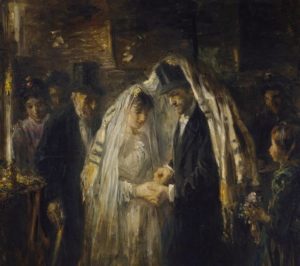This week’s parasha, Vayishlach, has an entire chapter outlining the progeny of Esau in detail, along with all the future “kings of Edom” that emerged from him. The inclusion of this passage in the Torah is somewhat puzzling: why should we care to know about all of these foreign rulers? Like we explored last week with Jacob’s sheep, though this information may seem trivial on the surface, mystical texts actually derive a great deal of meaning from this chapter. In fact, the Arizal stated that the secrets of shevirat hakelim, the famous “Shattering of the Vessels” at the start of Creation, are relayed specifically in this chapter.
 Recall that God originally made the cosmos entirely with Gevurah, or Din, with strict measure, strong judgement, and precise severity. This is why the account of Creation uses only Elohim as the name of God, for that is the name associated with Din (whereas the Tetragrammaton is typically associated with Chessed, unlimited kindness, and more specifically, with Rachamim, mercy and compassion). However, that universe was “too perfect” and too fragile, unable to contain God’s light. Of the ten “vessels” (the Sefirot) that held the universe together, the lower seven “shattered” and had to be reconstructed. The Arizal notes that they shattered into 288 major fragments. This is alluded to when the Torah says that the Spirit of God “hovered” over the primordial waters (Genesis 1:2). The word “hovered”, merachefet (מרחפת), is an anagram of met-rapach (מת רפ״ח), the fall or “death” of the 288 pieces (see Sha’ar HaPesukim on Beresheet). Continue reading
Recall that God originally made the cosmos entirely with Gevurah, or Din, with strict measure, strong judgement, and precise severity. This is why the account of Creation uses only Elohim as the name of God, for that is the name associated with Din (whereas the Tetragrammaton is typically associated with Chessed, unlimited kindness, and more specifically, with Rachamim, mercy and compassion). However, that universe was “too perfect” and too fragile, unable to contain God’s light. Of the ten “vessels” (the Sefirot) that held the universe together, the lower seven “shattered” and had to be reconstructed. The Arizal notes that they shattered into 288 major fragments. This is alluded to when the Torah says that the Spirit of God “hovered” over the primordial waters (Genesis 1:2). The word “hovered”, merachefet (מרחפת), is an anagram of met-rapach (מת רפ״ח), the fall or “death” of the 288 pieces (see Sha’ar HaPesukim on Beresheet). Continue reading

